
Pelle Björklund is CEO of Svenska Bostäder. Between 2003 and 2008 he was CEO of the Stockholmshem affiliated housing company, which is owned by the City of Stockholm in the same group of companies as Svenska Bostäder. From 1991 to 2003 he was CEO of Väsbyhem, a municipally-owned housing company in a smaller city north of Stockholm. Prior to this, he was Head of Department at SKB, Stockholms Kooperativa Bostadsförening, which is a cooperative housing association in Stockholm. After finishing his architecture studies at KTH Royal Institute of Technology in 1979, he designed a block of houses for Svenska Bostäder.

Linda Björkman is Department Manager of Citizen Services at the District Council of Hässelby-Vällingby. The Department of Citizen Services has the mission to provide newly arrived residents of the Hässelby-Vällingby community with information in the form of a Citizen Office and so-called “Citizen Hosts.” The Department also maintains a mentoring program and organizes events. Collaborations between Citizen Services and local social associations provide numerous activities for children and youngsters in the Hässelby-Vällingby district.
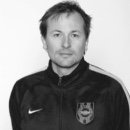
Stefan Bärlin is Sustainability Manager at Brommapojkarna. Brommapojkarna (BP) is Europe’s largest football association with 4,000 football-playing children and adolescents, and about 700 volunteer leaders. Over 1,000 of our young people are girls, which means that we are Sweden’s largest girls’ football club. In 2018 we had approximately 18,000 activities in the form of workouts and matches, including the 257 teams that participated in series games. BP’s activities are mainly focused on children and youth, which corresponds to approximately 95% of our total business. The schools for 6- to 7-year-olds and our teamwork instruction for those 8 years and up are the essence of what we do. BP has taken a strategic decision to act as a responsible social actor and carries out a relatively extensive CSR (Corporate Social Responsibility) work, especially under the auspices of what we call "Västerort Meeting Place.”
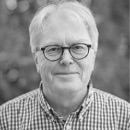
Mats Franzén is Professor Emeritus in sociology at the Institute for Housing and Urban Research, Uppsala University. He has been engaged in urban studies for more than four decades and received his Ph.D. in 1981 for a study of modernist planning ideas and the interventionist state in Sweden from the 1940s to the 1970s (with Eva Sandstedt). He has researched working class Stockholm between the wars, gentrification in Stockholm compared to Hamburg, and contemporary urban entrepreneurialism in Stockholm and Gothenburg, as well as several minor urban studies and some sport sociology and youth studies. Currently he is conducting an oral history of growing up in one of Stockholm’s first modern suburbs in the 1950s - Gubbängen.
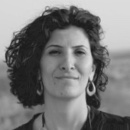
Sandi Hilal is an architect and researcher. She headed the UN Relief and Works Agency for Palestine Refugees in the Near East (UNRWA) Camp Improvement Program in the West Bank (2008–2014). Together with Alessandro Petti, she is a founding member of DAAR, an architectural studio and artistic residency programme that combines conceptual speculations and architectural interventions (www.decolonizing.ps). Alongside research and practice, Hilal is engaged in critical pedagogy and is a founding member of Campus in Camps, an experimental educational programme run by an Al Quds University/Bard College partnership in Dheisheh Refugee Camp, Bethlehem (www.campusincamps.ps). For the Swedish Art Agency, she currently conducts the public art project ’Al-Madafeh: The Hospitality Room’, together with refugees in Boden. She is also a research fellow at ArkDes, 2018-2019.

Anders Kindberg is CEO of SHIS Bostäder. SHIS Bostäder is Stockholm City’s residential social resource. We work with the city’s mission to provide short-term housing for people who are in need of temporary housing for social and/or economic reasons, as well as to offer longer-term housing for those in need of extended housing support. We are a municipal, non-profit foundation that is explicitly designed to help people in vulnerable situations, a unique role that feels extraordinary and rewarding.

Bo Larsson has worked in museums in Stockholm since 1991, to a large part with contemporary collections and acquisitions. Currently he is employed at the City Museum of Stockholm, where he partly works as an ethnologist partly as an editor in social science for the publisher Stockholmia forskning och förlag. He has a Ph.D. in economic history from Uppsala university/Nordiska museets forskarskola.

Jennifer Mack is Associate Professor at KTH School of Architecture. She combines history, ethnography, and formal analysis to study social change and the built environment, including research on the architecture and planning of mosques and minority churches, the landscapes of modernist neighborhoods, and the collisions between mid-20th century Swedish design norms and the needs and innovations of migrants. She received the 2018 SfAA/AAA Margaret Mead Award for her book, ’The Construction of Equality: Syriac Immigration and the Swedish City’ (University of Minnesota Press). Mack holds a PhD from Harvard University, an MArch and MCP from MIT, and a BA from Wesleyan University.
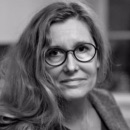
Helena Mattsson is Professor in History and Theory and Head of Department at KTH School of Architecture. Her research deals with the 20th century theory of welfare state architecture and contemporary architectural history with a special focus on the interdependency between politics, economics and spatial organizations. She is the co-editor of ’Swedish Modernism: Architecture, Consumption, and the Welfare State’ (London: Black Dog Publishing, 2010), the themed issue of ’Architecture and Culture Architecture and Capitalism: Solids and Flows’ (2017), and the forthcoming book ’Neoliberalism: An Architectural History’ (Pittsburgh: University of Pittsburgh Press). She is currently working on a book on postmodernism and politics in Swedish architecture. She is a member of the editorial board of Journal of Architecture.
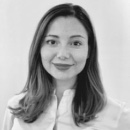
Jessica Persson is Development Strategist/Secretary at the District Council of Hässelby-Vällingby. She is responsible for undertaking decision-making about matters like the business plan and our analytical reports, and she is also responsible for leading goal definition and budgetary processes within the Department of Prevention and Social Work.

Magnus Rydevik is Head of the Department of Urban Environment. The Department of Urban Environment is responsible for the maintenance and development of the many parks and large natural areas located within the district of Välling- by-Hässelby. This “green structure” is critical for the urban development of the area. It can, for example, be used to connect different socioeconomic areas in order to increase social sustainability. The members of the department cooperate closely with central divisions in Stockholm in our work with sustainable city development.
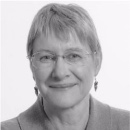
Ulrika Sax is an ethnologist and holds a PhD from the KTH School of Architecture, at the Royal institute of Technology in Stockholm. She has written numerous books, including two about the suburbanisation of Stockholm in the 20th Century. One book, published by the City Museum publisher Stockholmia förlag, is about the planning of the new town Vällingby and the outcome of the design visions. As an ethnologist, she is particularly interested in how the built environment affects people’s living conditions.
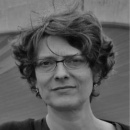
Meike Schalk is Associate Professor of Urban Design and Urban Theory at KTH School of Architecture. She is concerned with critical inquiry into questions of sustainability, democracy, and citizen participation in urban development processes, using practice-led research methods. She is a co-founder of Action Archive, a non-profit organization dedicated to urban research through the approaches of oral history and participatory historiography together with the artist and architect Sara Brolund de Carvalho and the architect and architectural historian Helena Mattsson. Most recently, she concluded a study as part of the Decode research project that focused on the Swedish model of the welfare state in depopulated areas of the rural North.
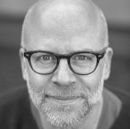
Erik Stenberg is an architect, Associate Professor at the KTH School of Architecture, and Assistant Director of KTH Center for a Sustainable Built Environment. He leads Grön BoStad Stockholm, a 5-year 92 MSEK EU project with the aim to make the housing sector in the greater Stockholm region smarter, greener, and more socially sustainable. Since 1999 he has been engaged in the practice, research, and politics of restructuring the so-called “Million Program” in Sweden. He has redesigned apartments, organized a housing fair (Tensta Bo 2006), researched and exhibited archival material, started an introductory architecture school in one of Stockholm’s largest modernist housing areas, and lectured extensively both nationally and internationally. He is co-editor of the book ’Sustainability in Scandinavia: Architectural Design and Planning.’
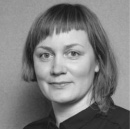
Anna Sundman is an architect and co-founder of Theory Into Practice, an architectural office that combines research and design. Their work often starts from the context of complex societal challenges and builds cross-disciplinary partnerships to develop innovative ideas, using architecture as the working medium. She is currently leading a research project aiming to challenge car dependency norms in teh development of Swedish housing Theory Into Practice relies on a strong foundation in theory, but the most important results are the built spaces that offer more sustainable ways of living.

Systrar runt hörnet (SRH) (Sisters around the corner) is a nonprofit “girlfriend” who works to strengthen, organize, and engage teenage girls in the suburbs. They are currently working in the Hässelby area. The association started in 2016 and has grown enormously since then. The members have increased in number, strengthened in resolve, and consolidated their efforts. The need for this group is great because there is all too often an exclusive focus on boys in the suburbs. We therefore we want to make sure that girls do not disappear from view.



